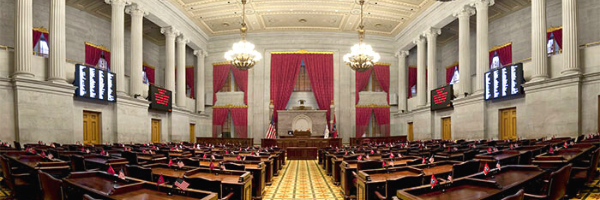Category: Newsletters
-
Union Station: Right to work amendment before Tennessee state House
Posted on

Tennessee right to work amendment hearing scheduled in state House The first hearing for Tennessee House Joint Resolution 72, a proposed right to work constitutional amendment, is scheduled for March 10. About the amendment The Tennessee Right to Work Amendment would add the following new section to Article XI of the state constitution: It is…
-
Documenting America’s Path to Recovery: March 5, 2021
Posted on
The next 72 hours What is changing in the next 72 hours? Georgia (Republican trifecta): Public and private K-12 teachers and staff will become eligible to receive coronavirus vaccines on March 8. Eligibility will also expand to include preschool and daycare staff, the parents of children with state-defined complex medical conditions, and adults with intellectual…
-
Ballotpedia’s Weekly Transition Tracker: February 27-March 5, 2021
Posted on
President Joe Biden (D) and his team have been preparing for the transition between presidential administrations since the election, including selecting senior White House staff and appointees to top government positions. In 2020, there were 1,472 government positions subject to presidential appointment: 1,118 positions required Senate confirmation and 354 did not. The new administration is…
-
Transition Tracker: Harris casts third tie-breaking vote on coronavirus recovery bill
Posted on
President Joe Biden (D) and his team have been preparing for the transition between presidential administrations since the election, including selecting senior White House staff and appointees to top government positions. In 2020, there were 1,472 government positions subject to presidential appointment: 1,118 positions required Senate confirmation and 354 did not. The new administration is…
-
The Daily Brew: First-year judicial appointments since 1981
Posted on
Welcome to the Friday, March 5, Brew. Here’s what’s in store for you as you start your day: Presidents’ first-year federal judicial appointments since 1981 Upcoming elections and filing deadlines RSVP to our Administrative State Lunch Club Presidents’ first-year federal judicial appointments since 1981 President Joe Biden (D) has not yet made any federal judicial…
-
Documenting America’s Path to Recovery: March 4, 2021
Posted on
The next 24 hours What is changing in the next 24 hours? Colorado (Democratic trifecta): The state will start Phase 1B3 of vaccine distribution on March 5. This phase includes all individuals age 60 and older, people age 16-59 with two or more state-defined comorbidities, and agriculture and grocery store workers. New York (Democratic trifecta): …
-
Senate Finance Committee splits 14-14 on Becerra nomination
Posted on
The Senate Finance Committee split along party lines on whether to favorably report Xavier Becerra‘s nomination for secretary of health and human services. President Joe Biden (D) and his team have been preparing for the transition between presidential administrations since the election, including selecting senior White House staff and appointees to top government positions. In…
-
The Daily Brew: Approval voting in the nation’s 57th largest city
Posted on
Welcome to the Thursday, March 4, Brew. Here’s what’s in store for you as you start your day: What happened in St. Louis’ first-ever approval voting election Biden withdraws Tanden nomination Recap of other election results from Tuesday What happened in St. Louis’ first-ever approval voting election St. Louis used a new voting method on…
-
Documenting America’s Path to Recovery: March 3, 2021
Posted on
The next 24 hours What is changing in the next 24 hours? Arizona (Republican trifecta): Vaccination centers in the Phoenix Metro Area can start vaccinating individuals age 55 and older and frontline essential workers starting March 4. People in those groups started making appointments on March 2. Centers in other parts of the state still…
-
Ballot Bulletin: U.S. Census Bureau postpones release of redistricting data
Posted on
Welcome to The Ballot Bulletin, where we track developments in election policy at the federal, state, and local levels. Each issue includes an in-depth feature—such as an interview or legislative analysis—and discussions of recent events relating to electoral and primary systems, redistricting, and voting provisions. U.S. Census Bureau postpones release of redistricting data On Feb. 12,…

